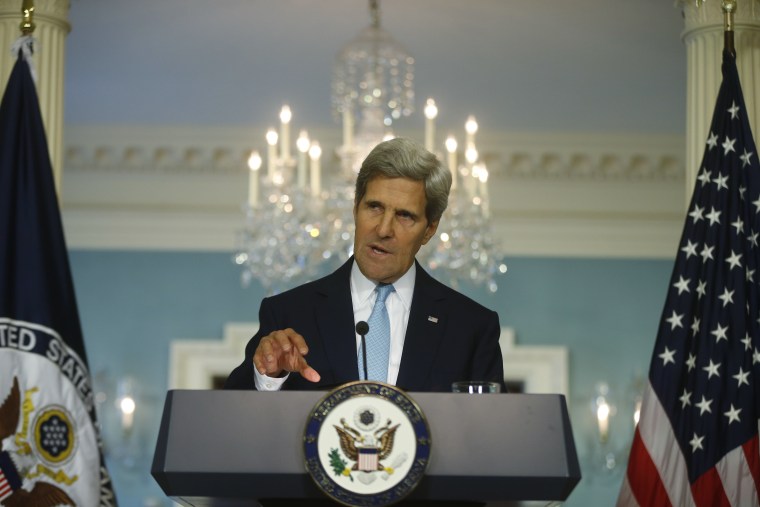President Obama and Secretary of State John Kerry spoke to the American people today about US action in Syria in light of Assad’s use of chemical weapons. The civil war in Syria, now in its second year, with more than 100,000 dead, including 7,000 children, escalated further last week as images emerged suggesting Bashar al-Assad broke The Geneva Protocol and used chemical weapons against his own people. Pending the UN weapons inspection report, President Obama must decide whether to enter into the conflict. There is no clear opposition leader for the US to support and according to the most recent NBC News poll, 50% of Americans are opposed to entering the conflict and 80% want President Obama to get approval from Congress. And in Great Britain, the US’s strongest ally, Parliament voted against supporting US strikes in Syria.
On Saturday’s Melissa Harris-Perry, host Melissa Harris-Perry will bring you the latest from the ground as well as a discussion on the obstacles and subsequent consequences facing President Obama and US allies.
If you tried to grab a quick lunch from a fast food restaurant on Thursday, you may have noticed that service was a slower than usual. Yesterday, thousands of fast food works walked out of restaurants nationwide demanding higher wages. The workers are calling for $15 an hour wage, instead of the federal minimum wage of $7.25, and the right to unionize. Fast food strikes have popped up across the country since November, but this week’s demonstrations were the first mass national protest targeting McDonald’s, Burger King, Wendy’s, and Yum Brands (who owns Taco Bell and KFC). On Saturday, our host and panel will discuss the economic importance of a higher living wage.
The 2013-14 NCAA football season kicks off this weekend which means it’s time to trade in your white jeans for your team colors and trips to the beach for game day tailgates. When you’re rooting for your alma mater or hometown team, college sports seems to represent the purest form of athleticism, athletes playing for the love of the game and not to please sponsors and professional franchises. But behind the pom-poms is a billion dollar industry that profits from the unpaid work of collegiate players and their likenesses. As players like Heisman Trophy winner Johnny Manziel of Texas A&M continue to be punished for allegedly accepting payment for paraphernalia and autographs, there is strong argument to be made for paying college athletes. Controversy isn’t limited to the NCAA, this week the NFL settled a lawsuit with retired players demanding compensation for sustaining concussion-related brain injuries they claim they were not appropriately warned about. Again, the question remains, did the players receive their fair compensation from an industry that has made so much money at the expense of their health? Make sure you watch our host and panel tackle both of these debated issues on Saturday’s Melissa Harris-Perry.
The president spoke in Buffalo, NY last week to address the rising cost of higher education. During his speech, he laid out a set of proposals aimed at tackling this issue so that American’s of all economic backgrounds can have the opportunity to attend college. Our host, Melissa Harris-Perry, will sit down with her panel to discuss the merits and demerits of President Obama’s plan.
Be sure to read what we’ve linked above, and watch Melissa Harris-Perry Saturday at 10 a.m. EST on MSNBC! Also, don’t forget to join us on Facebook and Twitter with the hashtag #nerdland.
